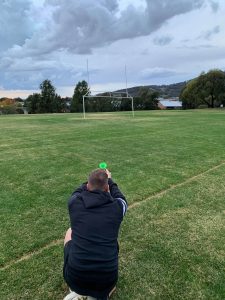Top Tips For A Long Distance Race
So, you’ve decided to commit to a long distance run, regardless of whether it is five-kilometres or a forty two-kilometre marathon, you’re going to need training strategies to get you over that finish line.
- Baby Steps to Start: find a rhythm to your exercise. Depending on how fit you are, perhaps start with a few kilometres at a time and build up the distance each time even if it’s only a few hundred metres more. It is as much about increasing the pace per kilometre as it is about increasing the distance. Once you find yourself picking up the pace, add on the extra distance.
- Set your goal: what is it you’re aiming for, you can estimate the time you will need to prepare for the race depending on the distance you are trying to achieve, as a full marathon will obviously take longer to prepare for than five kilometres.

- Download a running app: use Nike Running or RunKeeper to track your progress and record your statistics. “These are a runners best friend, a good app does the brain work for you and acts as a motivational tool to push you to compete with yourself” according to marathon runner Noel Quanchi.
- Support your feet: make sure you have proper running shoes, your feet need the support to take you these long distances! Your shoes should be replace after you have covered about 500 kilometres, this can vary though depending on the type of surface you run on.
- You can’t run long distance every day: it will only result in injury to joints and muscles because they weren’t given adequate time to recover. Aim to go twice a week. This should be more than enough recovery time, especially if you are new to long distance, as it’s going to hurt in the beginning!
- ‘You are what you eat‘: yes, you have heard it before, but it’s the truth. Fuelling your body with the wrong type of energy will result in you rolling over that finish line. Complex carbohydrates people! The day prior to your run aim for meals that are at least fifty percent carbohydrates (brown rice, sweet potato, quinoa, wholegrain bread), your body needs the slow release energy stores.
- Sleep right: here is a trick, for each kilometre you run, add an extra minute or sleep into your routine each night. Sleep deprivation will seriously impact your energy levels and the recovery rate of your muscles.
- The day before the race: you must drink at least two litres of water, your muscles are strongest when you are hydrated. A glass of water before the race and small sips throughout the race, you’ll sweat that out before it hits your bladder.
- Finally, stretch religiously: before and after each run take five minutes to warm up and warm down those muscles, you’ll be grateful the next day.
Sites like Runners World offer great training programs that detail a daily plan tailored to the distance you are setting out to achieve, such as this beginner’s guide.
Text and Image by Lauren Hollands





Be the first to comment!